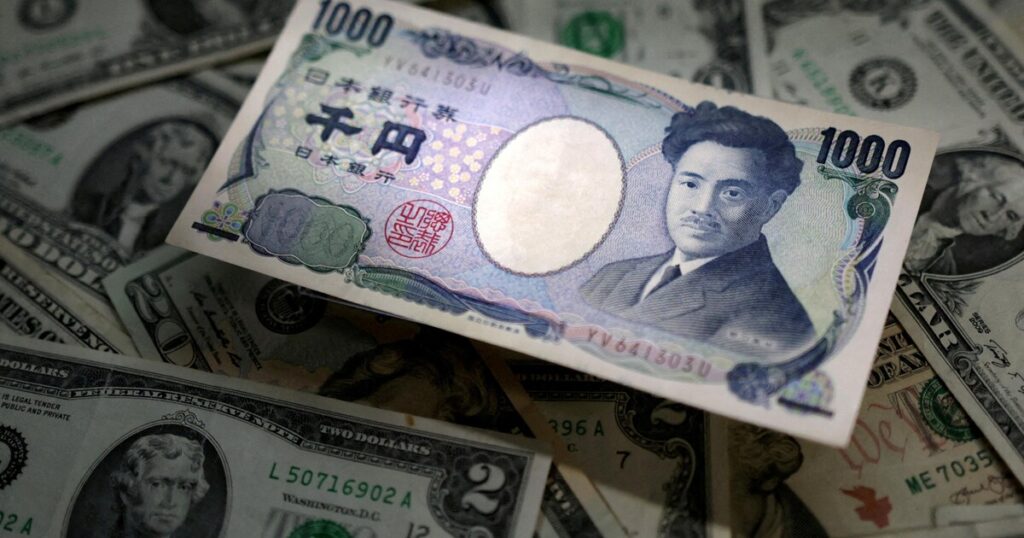US and Japan Finance Chiefs: The United States and Japan have reaffirmed their commitment to maintaining market-determined exchange rates, signaling ongoing cooperation on currency matters amid evolving global economic dynamics. In a recent joint statement, the finance chiefs of both nations confirmed that discussions on foreign exchange (FX) issues will continue, underscoring their shared goal of economic and financial stability.
The announcement comes in the wake of a recent US-Japan trade deal, which US President Donald Trump formalized through an executive order last week. While the trade agreement primarily addresses bilateral trade relations, both sides emphasized that currency matters will remain separate from future initiatives aimed at reducing the US trade deficit. This distinction is critical, as it aims to prevent potential market disruptions linked to government interventions.
During the discussions, US Treasury Secretary Scott Bessent and Japan Finance Minister Katsunobu Kato reiterated the importance of avoiding “excess volatility and disorderly movements” in exchange rates. According to the joint statement, such instability could have significant implications for both nations’ economic and financial systems, highlighting the need for careful, coordinated oversight of FX markets.
Highlights from the US-Japan Finance Talks
1. Commitment to Market-Determined Rates
Both countries emphasized that exchange rates should be determined by market forces, rather than government intervention. This approach is intended to ensure transparency, stability, and predictability in global currency markets.
2. Addressing Exchange Rate Volatility
The finance chiefs warned that excessive fluctuations in currency values could negatively impact trade, investment, and economic growth. Continued discussions aim to mitigate risks of disorderly market movements that could destabilize either economy.
3. Separation from Trade Deficit Discussions
While the US has expressed interest in reducing its trade deficit with Japan, officials clarified that currency issues will not be directly tied to these future initiatives. This separation seeks to maintain confidence in financial markets and avoid speculative pressures on the yen or the dollar.
4. Ongoing Dialogue Between Leaders
The joint statement signals a commitment to continued dialogue between US and Japanese finance officials. These talks are expected to focus on monitoring FX markets, sharing economic insights, and maintaining alignment on international financial policies.
Read about: Israel Finance Minister Bezalel Smotrich Visits Gujarat, Explores Investment Opportunities in GIFT City
Implications for Global Markets
The reaffirmation of market-determined exchange rates is significant for investors and traders, as it suggests stability in the USD/JPY pair in the near term. By avoiding government-led interventions, both countries aim to reduce uncertainty, which could otherwise affect global trade flows and capital markets.
Additionally, this approach aligns with broader efforts by major economies to coordinate monetary and fiscal policies while minimizing risks of competitive devaluations. Analysts note that sustained dialogue between finance chiefs can help maintain confidence among global investors and reduce the likelihood of abrupt market shocks.

Conclusion
The recent joint statement between the US and Japan underscores a shared commitment to market-determined exchange rates and financial stability. By separating currency discussions from trade deficit goals, both nations aim to avoid disorderly market movements while promoting predictable economic policies.
As global markets remain sensitive to FX volatility, ongoing discussions between Treasury Secretary Scott Bessent and Finance Minister Katsunobu Kato will play a crucial role in safeguarding international economic stability.
For businesses and investors, the reaffirmed focus on market-driven rates offers reassurance that exchange rate movements will be guided by supply and demand dynamics rather than abrupt policy interventions.
In the coming months, continued engagement between the US and Japan is expected to provide greater transparency, reduce currency risks, and foster long-term cooperation in global finance.
Also read: From Bubblegum Advert to Health Warning: The Story of Pepto-Bismol
FAQs About US-Japan Currency Talks
1. Why are the US and Japan continuing discussions on currency issues?
The two countries aim to ensure stable, market-determined exchange rates and avoid excessive volatility that could negatively impact economic and financial stability.
2. How does this relate to the US trade deficit?
Officials clarified that currency discussions are separate from trade deficit initiatives, preventing government intervention in FX markets while allowing future trade measures to proceed independently.
3. What are market-determined exchange rates?
Market-determined rates are set by supply and demand in currency markets, rather than being fixed or manipulated by governments. This approach promotes transparency and stability.
4. What impact could exchange rate volatility have on the economy?
Excessive fluctuations can affect trade competitiveness, investment flows, and inflation, potentially destabilizing financial markets in both countries.
5. What can investors expect from these ongoing discussions?
Investors can anticipate more predictable USD/JPY movements, reduced speculative pressure, and guidance from coordinated monitoring by finance officials to maintain financial stability.


